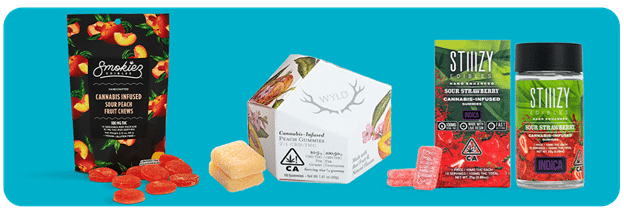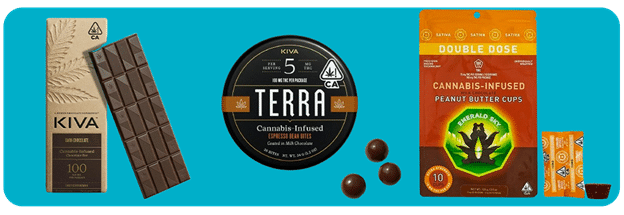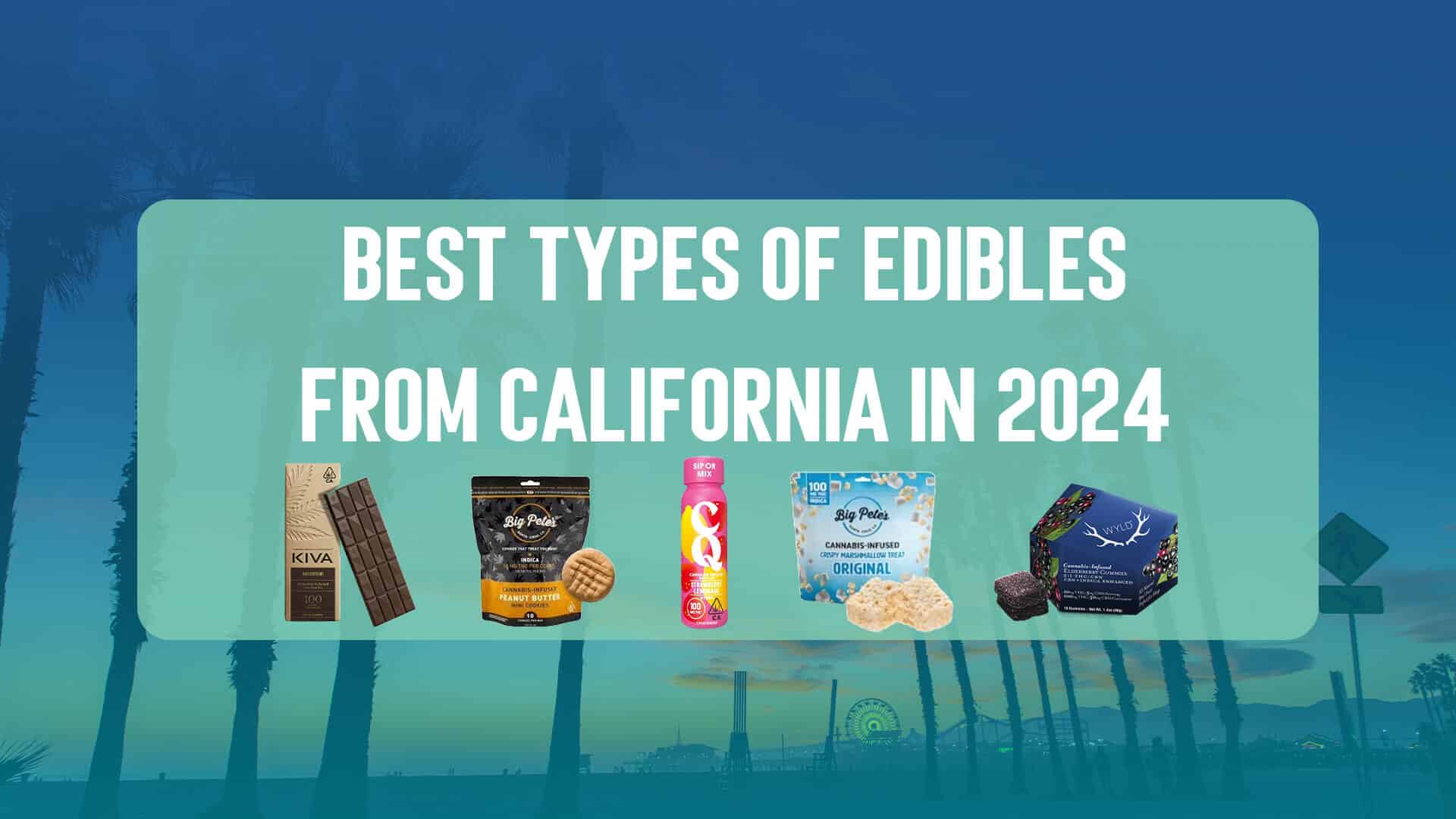Table of Contents
California’s cannabis history is one of pioneering spirit and relentless innovation, particularly in the realm of THC edibles. This evolution, propelled by early medical cannabis legislation and the full legalization of recreational cannabis, has transformed homemade snacks into gourmet, precisely-dosed delights. Dispensaries like the LAX Cannabis Club, conveniently located near Los Angeles International Airport, are at the forefront of this culinary revolution, catering to both curious tourists and seasoned cannabis enthusiasts.
From Humble Beginnings to Culinary Excellence
The early days of California’s medical marijuana scene saw edibles primarily limited to brownies and basic candies. However, legalization ignited an explosion of creativity. Today, the state’s edible market is a testament to quality, safety, and unparalleled variety. Chefs and confectioners expertly blend culinary artistry with precise cannabis science to create a symphony of flavors and effects.
Understanding THC Consumption: Edibles vs. Smoking
The way you consume THC greatly influences its effects. Here’s a breakdown of the popular options – edibles and smoking – and why they each hold appeal:
Key Differences
- Method:
- Edibles: THC-infused foods/drinks processed by your digestive system.
- Smoking: Inhaling smoke from cannabis flower or concentrates – THC goes directly to your bloodstream.
- Onset:
- Edibles: 30 minutes to 2 hours for effects to kick in (due to digestion).
- Smoking: Effects felt almost instantly.
- Duration and Intensity:
- Edibles: Longer-lasting high (up to 8+ hours), potentially more intense, especially at higher doses.
- Smoking: Effects fade faster (2-3 hours), generally a less intense high.
Other Factors
- Discretion: Edibles win – no telltale smell.
- Convenience: Edibles can be easier, especially if you don’t want to smoke.
- Health: Edibles avoid the risks of smoke inhalation.
- Variety: Both have loads of options, from gummies to different strains.
THC Gummies and Chews

- Gummies are perhaps the most popular type of edible due to their convenience, discrete nature, and a wide range of flavors. They can be formulated for various effects, including relaxation, sleep, or energy, and often come in precise doses.
- Chews offer a similar appeal to gummies, with a more taffy-like texture. They’re often available in both THC and CBD varieties, allowing for a range of experiences from psychoactive to non-intoxicating.
THC Infused Chocolates

- Chocolates range from artisanal bars to bites and truffles, infused with cannabis oil. They’re favored for their rich taste and the blend of cocoa’s natural mood-enhancing properties with cannabis.
Baked Goods
- Cookies, Brownies, and Cakes are traditional cannabis edibles that continue to be popular. These offer a comforting, familiar way to ingest cannabis, with doses varying widely to cater to different tolerance levels and desired effects.
Beverages
- Drinks and Elixirs include sodas, teas, coffees, and more, providing a hydrating way to consume cannabis. These beverages can offer both quick onset times and varying durations of effects, depending on the formulation.
Specialty and Health-focused Options
- Tinctures and Sublinguals are liquid extracts that can be taken under the tongue or added to food and beverages such as tea. They are favored for their precise dosing and the ability to quickly enter the bloodstream.
Types of Cannabis Extracts Used In Edibles
Cannabis extracts play a crucial role in the production of edibles, offering a range of potencies, flavors, and effects. These extracts are made by isolating cannabinoids like THC and CBD from the cannabis plant. Different extraction methods lead to different types of concentrates, each with unique characteristics. Here’s an overview of the various cannabis extracts used in edibles:
Infused Butter and Oils
- Cannabis-Infused Butter (Cannabutter) and Oils are the traditional backbone of cannabis edibles. These are made by slowly cooking butter or oil with cannabis flower or trim, allowing the fats to absorb the cannabinoids. Cannabutter and infused oils are versatile and can be used in a wide range of THC edible recipes, from baked goods to savory dishes.
Distillate THC Oil
- Distillate THC Oil is a highly refined cannabis flower oil that contains a high concentration of THC. The distillation process removes most of the plant’s natural terpenes, resulting in a flavorless, odorless, and potent THC oil. This makes distillates a popular choice for edibles, as they can be added to products without altering the taste. Distillates are also appreciated for their precise dosing capabilities.
Live Resin
- Live Resin is different because its made from fresh, frozen cannabis plants, preserving a wider spectrum of cannabinoids and terpenes than other extracts. This results in a more stronger flavor and aroma, closely mirroring the original plant profile. While less common in edibles due to its distinct flavor and higher production costs, live resin is sought after for high-quality, terpene-rich products that aim to offer a more nuanced, full-spectrum cannabis experience.
Rosin
- Rosin is a solventless extract, made by applying heat and pressure to cannabis nugs or hash. This method preserves a broad spectrum of cannabinoids and terpenes, producing a potent and flavorful concentrate. Rosin is valued for its clean, solvent-free extraction process and the preservation of the plant’s natural profile, making it a premium option for edibles focused on natural ingredients and full-spectrum effects.
Full Spectrum Extracts
- Full Spectrum Extracts maintain the complete profile of cannabinoids and terpenes found in the cannabis flower, similar to live resin and rosin. These extracts aim to leverage the “entourage effect,” where the combination of cannabis compounds work together to enhance the overall efficacy and experience. Full spectrum extracts are ideal for edibles that seek to provide a comprehensive, plant-like effect.
CBD Isolates
- CBD Isolates are pure, crystalline powders containing 99% pure CBD. The extraction process removes all other cannabinoids, terpenes, and plant materials, leaving behind only CBD. Isolates are perfect for edibles that require no THC content, catering to consumers looking for the therapeutic benefits of CBD without any psychoactive effects.
Predictable Effects and Therapeutic Applications
- Reliability and Consistency: The evolution in the formulation of edibles has led to products that offer more reliable and consistent dosages. This predictability is essential for individuals using edibles for specific therapeutic purposes, such as pain management, anxiety relief, or sleep assistance, allowing for a controlled and dependable experience.
- Therapeutic Alternatives: Many consumers are drawn to edibles as a viable alternative to traditional medications, owing to their longer-lasting effects and the ability to precisely control dosages. The importance of talking with a doctor cannot be overstated, especially for those considering edibles as an option for managing medical conditions. A professional can provide guidance tailored to individual health needs and circumstances.
The choice of extract significantly influences the final product’s flavor, potency, onset time, and effects. While distillates and infused butter/oils are the most common due to their versatility and ease of use, artisanal edibles might opt for live resin, rosin, or full spectrum extracts to provide a more enriched cannabis experience. As the industry evolves, the variety and sophistication of extracts used in edibles continue to grow, offering consumers an ever-expanding array of choices.
We recommend checking out the stoners mom latest podcast to learn more about the above mentioned LA dispensary.



